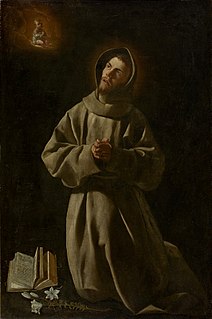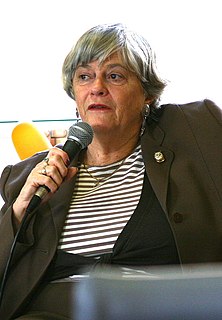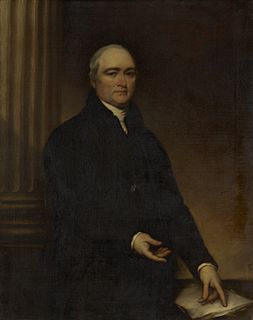A Quote by Anthony of Padua
Our thoughts ought by instinct to fly upwards from animals, men and natural objects to their creator. If created things are so utterly lovely, how gloriously beautiful must he be who made them! The wisdom of the worker is revealed in his handiwork.
Related Quotes
Now, may our God be our hope. He Who made all things is better than all things. He Who made all beautiful things is more beautiful than all of them. He Who made all mighty things is more mighty than all of them. He Who made all great things is greater than all of them. Learn to love the Creator in His creature, and the maker in what He has made.
The wise men understood that this natural world is only an image and a copy of paradise. The existence of this world is simply a guarantee that there exists a world that is perfect. God created the world so that, through its visible objects, men could understand his spiritual teachings and the marvels of his wisdom.
One would wonder to hear skeptical men disputing for the reason of animals, and telling us it is only our pride and prejudices that will not allow them the use of that faculty. Reason shows itself in all occurrences of life; whereas the brute makes no discovery of such a talent, but in what immediately regards his own preservation, or the continuance of his species. Animals in their generation are wiser than the sons of men; but their wisdom is confined to a few particulars, and lies in a very narrow compass. Take a brute out of his instinct, and you find him wholly deprived of understanding.
Is a Christian- one who communicates daily with the Creator- to divorce himself from the things God created and intended man to have, and which demonstrate the fact that man has been made in the image of God? In other words, are we who have been made in the image of our creator to be less creative than those who do not know the Creator? The Christian should have more vividly expressed creativity in his daily life.
. . . Newton was an unquestioning believer in an all-wise creator of the universe, and in his own inability - like the boy on the seashore - to fathom the entire ocean in all its depths. He therefore believed that there were not only many things in heaven beyond his philosophy, but plenty on earth as well, and he made it his business to understand for himself what the majority of intelligent men of his time accepted without dispute (to them it was as natural as common sense) - the traditional account of the creation.
Science tries to answer the question: "How?" How do cells act in the body? How do you design an airplane that will fly faster thansound? How is a molecule of insulin constructed? Religion, by contrast, tries to answer the question: "Why?" Why was man created? Why ought I to tell the truth? Why must there be sorrow or pain or death? Science attempts to analyze how things and people and animals behave; it has no concern whether this behavior is good or bad, is purposeful or not. But religion is precisely the quest for such answers: whether an act is right or wrong, good or bad, and why.





































